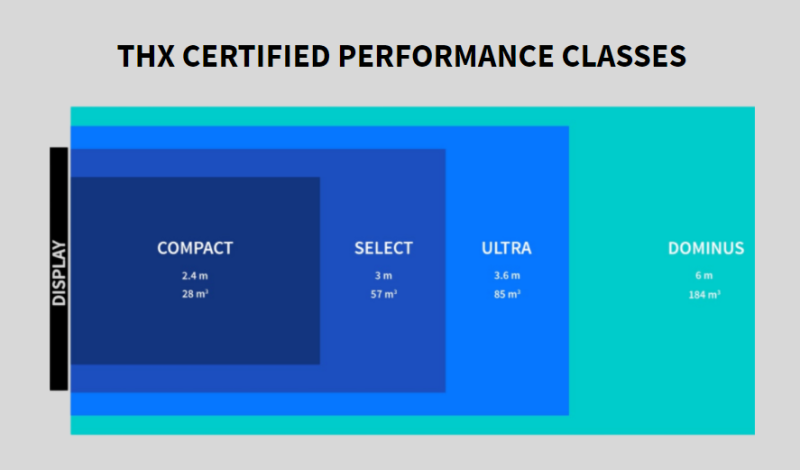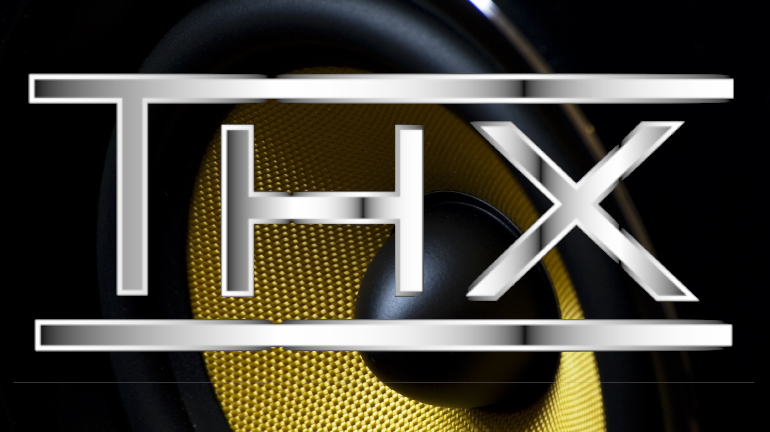What is a “THX” Speaker?
While they have never been prevalent, THX speakers are a thing that exists. THX is not a manufacturer of speakers, but a group that certifies the performance of a speaker. So, what does it mean if a speaker has THX certification? Does that make it different than other speakers? Better? Worse? Let’s discuss.
Who is THX?
THX was developed by George Lucas to standardize how audio was recorded and played back on film. This standardization led to higher quality audio in cinemas and THX-certified cinemas. Back in the day, the difference between a THX and non-THX theater was pretty evident. There was usually a LOT more bass but the overall quality was better.
Soon, THX branched out into the home with THX-certified receivers, speakers, and more. Plus they train custom installers and calibrators on how to best install and calibrate home theater systems. The THX logo means that a product or person has been evaluated for quality or trained on how to do something properly.

What Does THX Mean for Speakers?
THX takes any speaker through a series of tests to ensure that it hits certain benchmarks. In the case of speakers it means that it can:
- Hit certain output benchmarks for the level of THX certification
- Maintains a flat frequency response
- Retains its flat frequency response off-axis
The key here is that THX, for obvious reasons, doesn’t release EXACTLY what they are measuring. But we can infer a few things. The output benchmarks are delimited by the size of the room. There is THX Compact, Select, Ultra, and Dominus. Compact is for the smallest room up to Dominus for the largest size room. What this means is that the speaker can hit full reference volume at that seated distance without distorting. Now, this assumes you have the proper amplifier, but THX speakers are almost always 8 Ohm making them easy to drive. Even when they are 4 Ohm, THX speakers tend to present an easy load playing nice with most amplifiers.
THX Certified Speakers Frequency Response
THX speakers are certified to have a “flat” speaker response. Specifically, THX says, “Our test confirms the axial frequency response is balanced and flat.” While we also prefer a flat response, there are always compromises. What THX doesn’t tell you is where they allow less than ruler flat response. We can assume there will be a drop-off at the top end as almost all speakers have issues there. We also know that THX assumes you’ll cross over all your speaker into a subwoofer at 80Hz. So expect your THX speakers to play cleanly down to 80Hz and a bit lower but not get anywhere near full range.
The off-axis response is also undefined. We know it needs to be within certain tolerances, but THX doesn’t let us know what they are. What it means for you is that placing a THX-certified speaker should be exceedingly easy. The off-axis response should be close enough to the on-axis response that you can create a very large “sweet spot” that should encompass the whole couch or listening area.
THX-certified subwoofers are similar in that they have performance parameters they need to hit. They are expected to play up to 80Hz (and a bit past) and down to 20Hz. There seems to be no requirement for them to play lower than 20Hz as most THX subwoofers we’ve seen measured drop off quickly at 20Hz. A THX-certified subwoofer that is rated for your size room or larger will fill it with bass.
What About Non-THX Certified Speakers?
If you are shopping for speakers, and see a pair of THX speakers next to a pair that doesn’t have the THX certification, what does that mean? Are the THX speakers better by definition? Not really. There are many speakers on the market that could achieve THX certification. They don’t because there is a licensing fee involved. Rather than pay that fee, and subsequently increase the asking price for the receiver, they forgo the certification. In fact, you’ll see manufacturers that release a THX speaker one year and a very similar-looking non-THX certified speaker the next. Could both speakers have been THX certified? Almost certainly.
The THX certification is a shorthand for buyers to know that the speakers meet the THX requirements which, we admit, are good benchmarks. But they are not the BEST benchmarks. There are subwoofers out there that can play lower and louder than THX models for less money. There are speakers that have better high and low-end extension than THX models. Does that make them better? Maybe. But it requires the buyer to do some research.
Conclusion
If you’ve bought THX speakers, you’ve made a good purchase. The speakers will play loud enough in your room, they will crossover easily and cleanly into a subwoofer, and they will play well together to give you the full range of sound that humans can hear. But if you are on a budget or want speakers that perform outside the THX benchmarks, there are lots of options out there for you. You just may have to do a bit more homework. And honestly, for many of us, that is part of the fun of speaker shopping.


